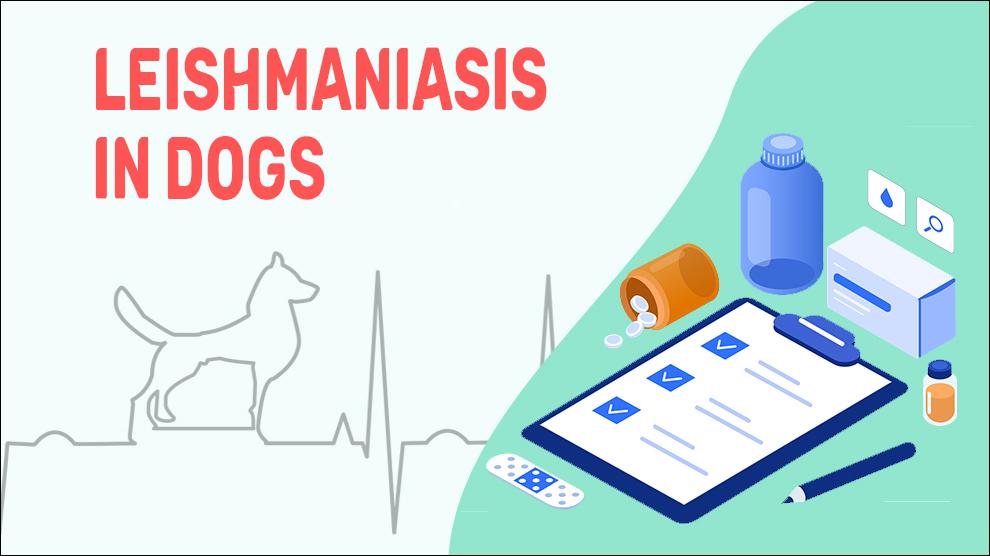What Is Leishmaniasis In Dogs?
Leishmaniasis is a parasitic disease that affects dogs all over the world. It is transmitted through the bite of a sandfly, and while any breed of dog can be affected, certain breeds are more susceptible to the disease than others.
Common symptoms of Leishmaniasis include weight loss, lethargy, loss of appetite, skin lesions, and swollen lymph nodes. If left untreated, the disease can be fatal.
Treatment options include medication and supportive care, but prevention is key. Keeping your dog protected from sandfly bites through the use of insect repellents and avoiding high-risk areas can help prevent the disease.
While there is no specific diet that can cure Leishmaniasis, a healthy diet can help strengthen the immune system and support overall health.
It is important to seek veterinary care immediately if you suspect that your dog has Leishmaniasis.
Symptoms Of Leishmaniasis In Dogs
The symptoms of Leishmaniasis in dogs can vary and may not appear for months or even years after infection.
Some of the common symptoms include:
- Weight loss and loss of appetite
- Lethargy and weakness
- Skin lesions, including scaly patches, ulcers, and nodules
- Swollen lymph nodes
- Nosebleeds and other bleeding disorders
- Eye problems, including conjunctivitis and uveitis
- Excessive thirst and urination
- Lameness and joint pain
Treatment Options For Leishmaniasis In Dogs
There is no known cure for Leishmaniasis in dogs, but treatment can help manage the symptoms and slow down the progression of the disease.
Treatment may include:
- Medications: Several drugs are available to treat Leishmaniasis in dogs, including antiparasitic drugs, immunomodulatory drugs, and antibiotics.
- Nutritional support: Dogs with Leishmaniasis often have a poor appetite and may require nutritional support, such as a high-calorie diet or supplements.
- Supportive care: Supportive care, such as wound care, pain management, and fluid therapy, may be necessary to manage the symptoms of the disease.
Home Remedies For Leishmaniasis In Dogs
While there is no cure for Leishmaniasis, there are some home remedies that can help manage the symptoms and support your dog's health:
- Keep your dog indoors during peak sand fly activity times (dusk and dawn) to reduce the risk of infection.
- Use insect repellents and protective clothing to prevent sand fly bites.
- Keep your dog's environment clean and free of debris to reduce the risk of infection.
- Provide a healthy diet with high-quality protein to support your dog's immune system.
- Provide plenty of fresh water to help your dog stay hydrated.
How To Prevent Leishmaniasis In Dogs?
Prevention is the best way to protect your dog from Leishmaniasis.
Here are some prevention tips:
- Use insect repellents and protective clothing to prevent sand fly bites.
- Keep your dog indoors during peak sand fly activity times (dusk and dawn).
- Keep your dog's environment clean and free of debris to reduce the risk of infection.
- Regularly screen your dog for Leishmaniasis and other diseases.
Affected Dog Breeds Of Leishmaniasis
Leishmaniasis can affect any breed of dog, but certain breeds are more susceptible to the disease than others.
Breeds that are more likely to develop Leishmaniasis include Boxers, Rottweilers, German Shepherds, Doberman Pinschers, and Golden Retrievers.
This is because these breeds have a weaker immune system and are more susceptible to infections.
Causes For Leishmaniasis In Dogs
Causes:
Leishmaniasis is caused by the Leishmania parasite, which is transmitted to dogs through the bites of infected sandflies. The disease can also be transmitted through blood transfusions or from mother to puppy during birth.
When To See A Vet For Leishmaniasis In Dogs?
If you suspect that your dog has Leishmaniasis, it is important to seek veterinary care immediately. The disease can be fatal if left untreated, so it is crucial to catch it early.
Some of the symptoms of Leishmaniasis include weight loss, lethargy, loss of appetite, skin lesions, and swollen lymph nodes.
Your vet will be able to diagnose the disease through a blood test and can recommend the appropriate treatment.
Food Suggestions For Leishmaniasis In Dogs
While there is no specific diet that can prevent or cure Leishmaniasis, a healthy diet can help strengthen your dog's immune system and help them fight off the disease.
A balanced diet that includes high-quality protein, healthy fats, and plenty of vitamins and minerals is essential. Avoid feeding your dog table scraps or human food, as this can lead to obesity and other health problems.
Conclusion
Leishmaniasis is a serious disease that can be fatal if left untreated. While any breed of dog can be affected, certain breeds are more susceptible to the disease than others.
If you suspect that your dog has Leishmaniasis, it is important to seek veterinary care immediately. A healthy diet can help strengthen your dog's immune system and help them fight off the disease, but it is not a cure.
By working closely with your vet and following their recommendations, you can help your dog stay healthy and happy.

















